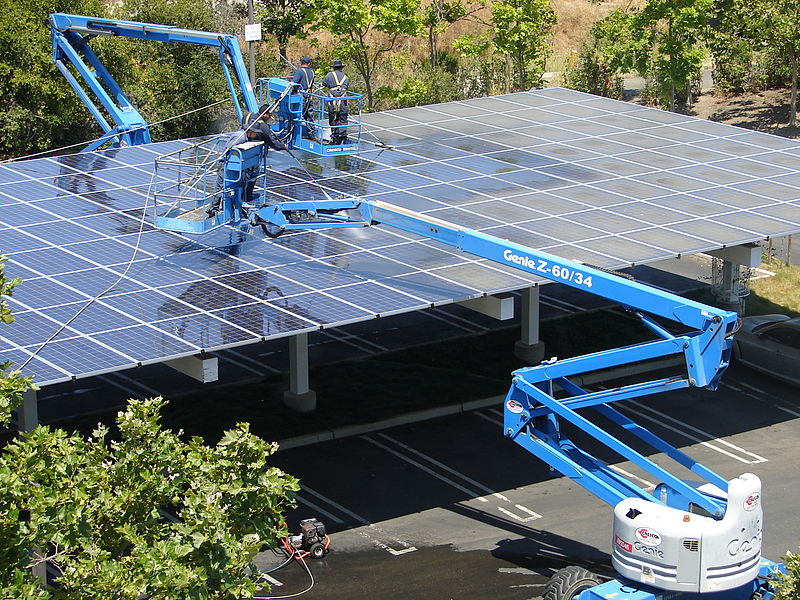
 Photo by Avinash Kaushik (Googleplex)
Photo by Avinash Kaushik (Googleplex)
THERE is an ongoing online debate about GNU/Linux as a remedy/recovery plan for old PCs; those who deem it unfit for old computers (no link, intentionally, but there is a rebuttal in [1]) are totally ignoring the many distributions which are specifically created and optimised so as to help revive old PCs. Some, like the Raspberry Pi, are doing exceptionally well [2-6] with very little. There is no need for massive computers to perform simple tasks. A lot of people use computers for very light activity (like Web surfing) with just one active application actually running. It's a trend. Even Intel is now surrendering to the trend [7], embracing its rival out of desperation perhaps (Atom was a big failure). Microsoft and Apple, two companies that rely on x86 and inefficient machines (Apple is routinely shamed by Greenpeace for being one of the dirtiest companies in the planet alongside Microsoft [1, 2]), are arguing over who's responsible for draining batteries so quickly [8] and we are constantly reminded of the urgency of energy efficiency [9] because solutions/alternatives do exist these days [10,11].
"Cooperation reduces other sorts of waste, too."When it comes to natural resources, there is a limit. They are all finite (some less than others, e.g. sun rays and winds), so we should stop assuming infinite expansion of everything (including Moore's/Intel's silly 'law' [12], which assumes we can magically redefine or bend atoms' size). We are in this energy-wasting mess right now because greedy oil tycoons and economists don't seem to grasp scarcity, especially in a lifetime's worth/timespan.
For those who are "green"-conscious, Free software should become a thing to embrace and to spread. Cooperation reduces other sorts of waste, too. ⬆
Related/contextual items from the news:
Even on old hardware, GNU/Linux idles like every other desktop OS since i386. Really. PCs are much faster than humans and sit in a looping state checking for stuff to do until the human makes another click some milliseconds apart. In a millisecond, an old PC with a single or dual-core CPU can do millions of operations. It’s not that hard to do IT and keep ahead of humans if you are that fast. Further, modern hard drives run ~100-200 MB/s and the old ones slog at 40 MB/s, not that different if you’ve just clicked on an icon or link. A lot of what we do is out on the Internet where a click takes a few tenths of a second to get anything done and many transactions take ~1s.
This week our friends at OpenERP have launched their own crowdfunding campaign for a retail Point of Sale solution, based on our favourite little computer – the Raspberry Pi, and some other bits of hardware.
It is fair to say that the Raspberry Pi is a success. I love them, you love them, the whole world loves them. It has reminded the rest of the computing world that the UK - and Cambridge especially - has a proud computing heritage.
It was recently announced that the Raspberry Pi (RPi) has sold 1.75 million units in the 1.5 years they have been available. That is seen by most folks as a screaming success. In contrast, the One Laptop Per Child project (OLPC) has sold about twice as many OLPC units in about 6+ years... yet it is seen by some as a quasi-failure.
You might not have noticed that the $35 computer, Raspberry Pi has exceeded 1 million units shipped. Further, they have production volumes cranked up to the point where you can order more than one unit.
“It’s huge. Imagine ARM’s most powerful and technologically advanced 64-bits processor built on Intel’s leading-edge fabs. A duo that will be hard to beat,” explains Nathan Brookwood, principal analyst at Insight 64.
Is it true? Yes. And also no. What PCWorld’s team of mythbusters discovered was that yes, installing Windows on a MacBook Air exhausted its battery far, far quicker than the Mac OS ever could. But when asked to explain themselves, Microsoft executives explained that Apple’s engineers simply weren’t as dedicated as the Windows world.
The primary complaint against solar power—that it, you know, requires the sun—is perfectly valid. But Arizona's new Solana Generating Station, the largest capacity solar thermal plant on the face of the Earth, has just provided a $1.4 billion counterpoint. Thanks to its massive molten salt reserves, this plant keeps producing power even after lights out.
Vanderbilt University researchers say they have come up with a way to store electricity on a silicon-based supercapacitor that would let mobile phones recharge in seconds and let them continue to operate for weeks without recharging.
The researchers said in a paper that instead of storing energy in chemical reactions the way batteries do, silicon supercapacitors store electricity by assembling ions on the surface of a porous material. As a result, they tend to charge and discharge in minutes, instead of hours, and operate for a few million cycles, instead of a few thousand cycles like batteries, the researchers stated.
"The tech industry has been lazy and has depended on Moore's Law, but once it's gone they're going to have to come up with new and different ways to make their products better and faster," suggested blogger Mike Stone. "I'm sorry to say that I don't know how they're going to do that at this point, but I have all the confidence in the world that they will."
Comments
Needs Sunlight
2013-10-31 13:43:19